Speakers at the conference presented practical examples of how to use EU funds primarily from the Structural Funds and the Horizon 2020 programme in an integrated and coordinated way.
In his welcome speech József Pálinkás, President of the NRDI Office pointed out that the only way to make the Hungarian RDI system efficient is to use national and EU funds in an integrated and coordinated way that supports value creation. Currently, stakeholders can apply for RDI funding through approximately 30 programmes announced by the NRDI Office, and more calls for applications are going to be announced in the second half of the year. The President of the NRDI Office emphasized that although Hungary is still lagging behind the most successful European nations in terms of research, development and innovation, the aim is to catch up and make domestic organisations more competitive in the international market by 2020. The Hungarian R&D communities have to get prepared for the period after 2020, when they will have to rely more heavily on innovation funds to be disbursed directly from Brussels. It was mentioned as a positive example that both the Economic Development and Innovation Operational Programme (EDIOP) financed by the EU, and the Hungarian funding of the National Research, Development and Innovation Fund, are open to provide supplementary funds for certain project types within the H2020 programme (e.g. Teaming Actions, SME Instrument) to value international excellence in the course of the domestic evaluation process.
Tamás Karsai, deputy state secretary responsible for the economic development programmes at the Ministry of National Economy emphasized: by 2020 more than HUF 700 billion will be made available for RDI purposes under the EDIOP, and the Ministry highly relies on the NRDI Office to effectively contribute with a coordinated planning and implementation in this respect. This and the coming years will be a kind of learning period for applicants to become more capable of exploiting the opportunities that lie in the coordinated use of various EU funds. The deputy state secretary stated that the Managing Authority of the EDIOP calls is open to initiatives promoting the interconnected utilisation of sources from the Structural Funds and the H2020 programme.
Colin Wolfe from DG REGIO of the European Commission briefly outlined the objectives of the “Stairway to Excellence” initiative to the conference participants. The EU Member States vary substantially in their performance in research, development and innovation, so when it comes to the overall competitiveness, it is vital to reduce the differences and bridge the innovation gap between Member States. Colin Wolfe pointed out that the national smart specialisation strategies facilitate this aim where countries can be successful by focusing on their strength, such as the pharmaceutical, the ITC or the automotive industries in the case of Hungary. By making the RDI cooperation more dynamic, these efforts will ensure development not only in Budapest but all across the country. He also emphasized that synergies of combined EU funds create new opportunities for companies but progress never comes without taking the risks: you have to find out what works and what doesn't.
The conference dedicated a separate session to the Hungarian RDI policy connections, inviting participating research institutions, universities and businesses to discuss experiences gained through the implementation of EDIOP projects, as well as the expectations of applicants and funding orgainizations. Another separate session dealt with how to make Hungarian participation in the Horizon 2020 programme more successful, and how to benefit from synergies of combined funds in practice.
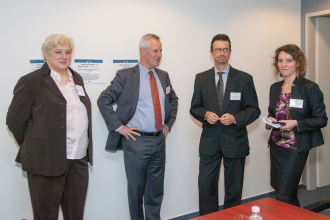 |
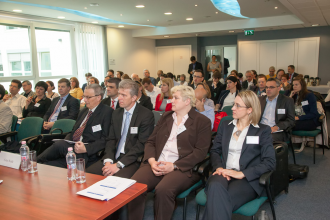 |
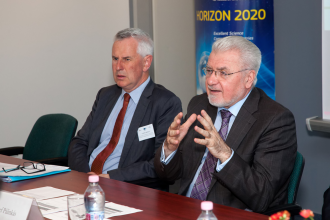 |
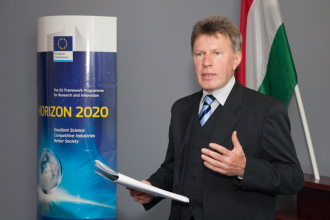 |
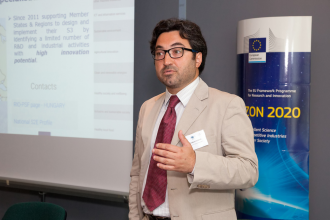 |
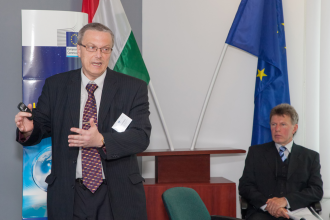 |






